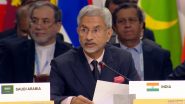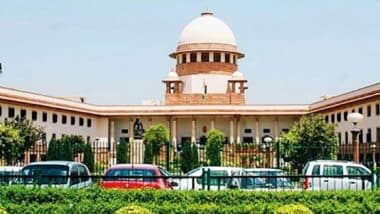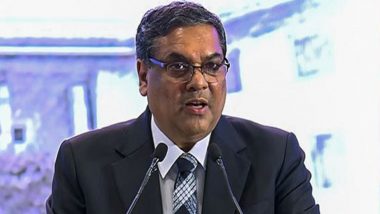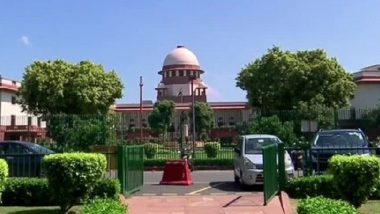New Delhi, November 5: The Supreme Court on Tuesday dismissed the Centre's appeal against an order that quashed a look out circular (LOC) issued to the former house help of late actor Sushant Singh Rajput. A bench of Justices B R Gavai and K V Viswanathan dismissed the appeal noting no one had appeared in the case when the matter came up for hearing.
"We do not find any merit in the appeal," held the bench. An LOC is issued by investigating agencies to ensure the accused persons do not flee the country. The Centre had challenged the April 10 Bombay High Court order quashing the LOC issued by the CBI against one Samuel Miranda. ‘AIIMS Doctor Changed Autopsy Report’: Somy Ali Claims Sushant Singh Rajput’s Death Was ‘Murder’ and Not Suicide During Shocking AMA Session.
The high court had observed the LOC had been issued on the basis of the registration of the FIR and said there was no apprehension of the petitioner evading arrest or being unavailable for the trial. "Nothing was brought to our notice in the LOC, reflecting the 'reason' for issuing of the LOC, except registration of an FIR and setting out the gist of the FIR. Neither has anything been brought on record for continuance of the LOC not has the respondent number one, the CBI, placed before us any subsequent request for continuation/renewal of the LOC, after the expiry of one year," the high court noted.
The CBI was further stated to have neither filed a charge-sheet nor a closure report. "It is not in dispute that the petitioner has joined the investigation and has co-operated with the same," said the high court. Miranda, before the high court, claimed that the LOC was issued as against him in 2020 and the police were yet to file a report. Sushant Singh Rajput Case: CBI Confirms Investigation Process Still on; Denies Further Info to RTI Query.
He said the look our circular couldn't be issued indefinitely, particularly when he had co-operated with the investigation and attended the CBI office when summoned. "Keeping the LOC pending for over 3.5 years, has infringed the petitioner's right to travel abroad, and clearly violates his fundamental right under Article 21 of the Constitution India, to travel freely," said Miranda.













 Quickly
Quickly




















